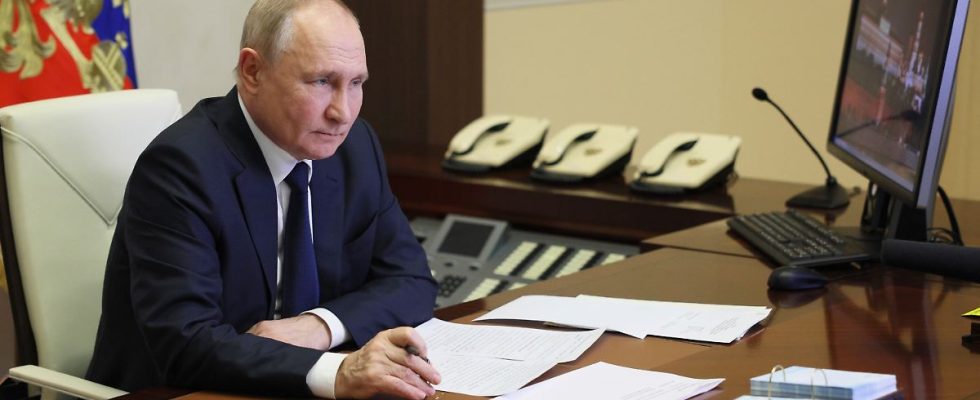Decree signed for exchange
Putin wants to get rid of frozen assets
November 9, 2023, 2:40 a.m
Listen to article
This audio version was artificially generated. More info | Send feedback
After the attack on Ukraine, the West imposed massive sanctions on Russia. Moscow responds with counter-sanctions. Putin has now issued a decree allowing citizens to exchange their assets frozen abroad for money from investors seized in Russia. It is unclear whether this will work.
Russian President Vladimir Putin has signed a decree allowing the exchange of Russian assets frozen abroad for foreign assets frozen in Russia. According to the decree, Russians can exchange blocked assets abroad up to a value of 100,000 rubles (about 1,000 euros) through a voluntary mechanism using funds from accounts with assets of foreign investors and companies blocked in Russia.
The latter are in so-called Type C accounts. The Type C account holder, usually a foreign company, can then receive the foreign shares that the Russian investor previously owned abroad. However, there is no guarantee that the foreign clearing houses processing the exchange, such as Euroclear and Clearstream, will cooperate.
Since the conflict in Ukraine in February 2022, Western countries have imposed numerous sanctions against Russia. Russian banks were blocked from international payments and Russian assets abroad were frozen. According to the Kremlin, the equivalent of more than 15 billion euros in foreign investments by Russian citizens are blocked abroad. In response, Moscow blocked some assets of foreign investors and companies in Russia in Type-C accounts.
Uniper, Danone or Carlsberg expropriated
Since the beginning of the Ukraine conflict, numerous companies from Western countries have withdrawn from Russia or sold their assets there in order to avoid being subject to sanctions. The Kremlin has created hurdles for foreign companies to make money from their sales. In some cases he subjected companies to state control.
Russia took control of the Russian subsidiaries of the German company Uniper and the Finnish group Fortum. The Russian subsidiaries of the French yogurt manufacturer Danone and the beer company Carlsberg were also affected.

